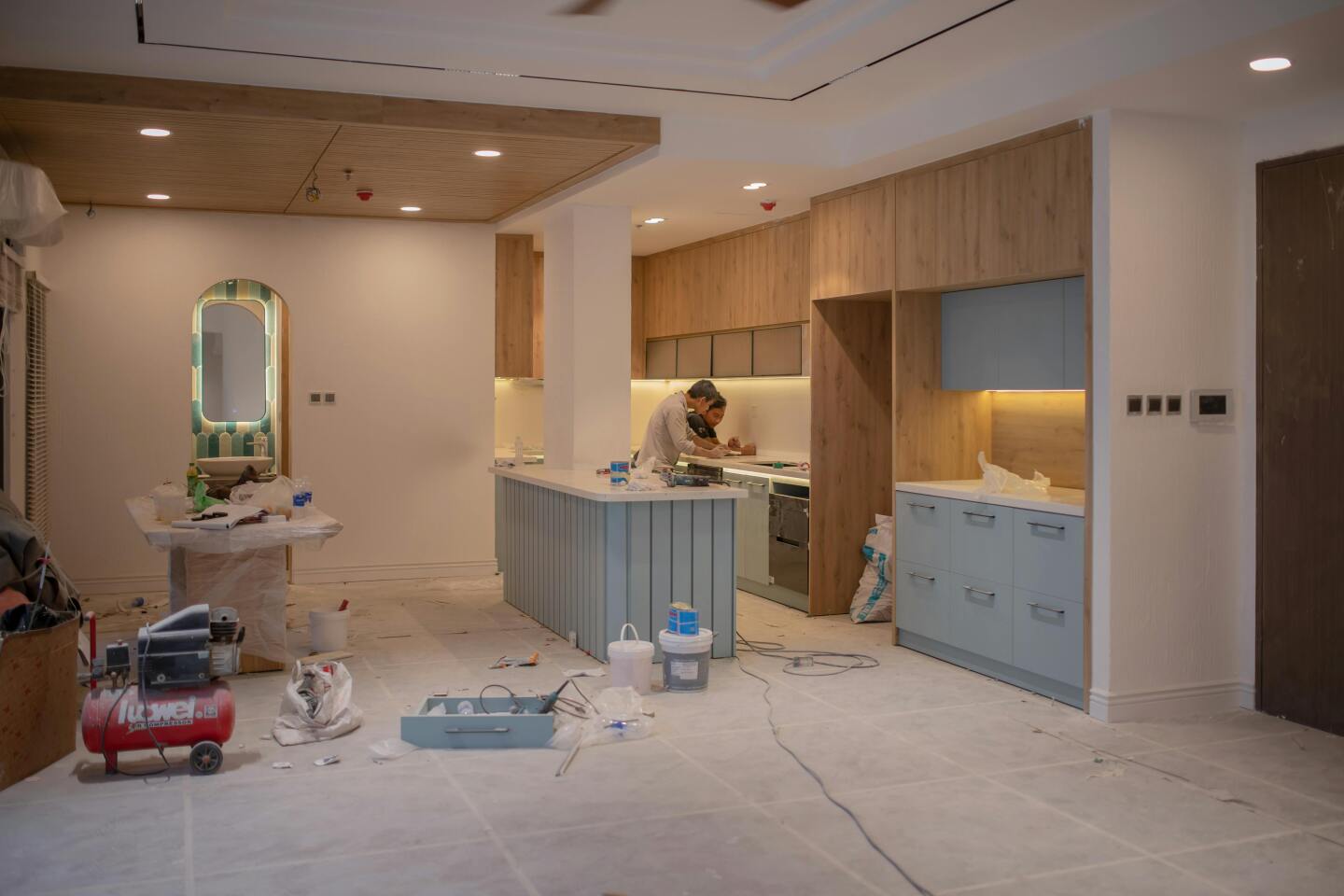Home prices and sales have continued to rise. However, the housing market is facing a new challenge: a historic shortage of existing homes for sale nationwide, intensifying price competition further.
According to the National Association of Realtors (NAR), total housing inventory plummeted to a record low of 910,100 units in December, marking an 18% decrease from the previous month and a 14.2% drop from the previous year. This marked the lowest level in over two decades since data collection began.
NAR’s Chief Economist Lawrence Yun remarked on the unprecedented decline in inventory, stating that although homebuilders have taken steps to increase supply in 2024, rectifying the current gaps will require years.
“We saw inventory numbers hit an all-time low in December, homebuilders have already made strides in 2022 to increase supply, but reversing gaps like the ones we’ve seen recently will take years to correct.”
said NAR’s Chief Economist Lawrence Yun, in the data release.
The tight housing supply also means homebuyers are competing for fewer houses on the market. Because of this, most housing experts say prices will likely continue to climb.
Christian Wallace, head of real estate services at Better.com, emphasized the continued competitiveness of the market, with a notable 28% increase in home purchase applications in the first 27 days of 2022, despite mortgage rates reaching their highest levels in nearly two years.
“The market is still extremely competitive and will remain so over the next couple of years”
According to the latest S&P CoreLogic Case-Shiller U.S. National Home Price NSA Index, home prices surged by 19% annually in November. Although existing home sales dipped by 4.6% in December compared to the previous month, they still marked an 8.5% increase for the entire year, the highest annual level in 16 years.
Most real estate experts agree that current market conditions mean homebuyers may need to pay top dollar or even exceed the appraised value to secure a property.
The housing market is increasingly dominated by all-cash buyers and investors
Buyers not only contend with escalating home prices but also with a significant spike in mortgage rates, surging over 50 basis points since late December to reach 3.55%. This increase in mortgage rates has already inflated the cost of borrowing for prospective homeowners this year.
For many buyers, the surge in mortgage rates directly affects their purchasing power. Those lacking substantial cash reserves to offset mortgage costs or compete with all-cash buyers find themselves increasingly marginalized in the market.
Melissa Cohn, regional vice president and executive mortgage banker at William Raveis Mortgage, anticipates a shift in buyer behavior from the current fear-of-missing-out (FOMO) mindset to a more conservative approach as rates continue to rise.
“Buyers are still operating on FOMO [fear-of-missing-out] mode. But as rates go up, that will likely change, and they will get more conservative”
Despite first-time homebuyers maintaining a significant presence in the market, accounting for 30% of sales in December, this figure reflects a 1% decline from the previous year, according to NAR data. Conversely, all-cash buyers, including investors, have seen an uptick, comprising 23% of market sales, up from 19% the previous year.
Investor interest is partly fueled by the robust rental market, where median rent prices surged by 17.8% last year, surpassing the average annual growth of 2.3% in the pre-COVID years. Investors, recognizing the potential, have seized opportunities in the single-family rental sector, further intensifying competition in certain markets.
“The rise of the single-family rental sector, which has grown immensely with no signs of slowing down, has already impacted the competitive nature of buying dynamics in certain markets as a greater number of investors seek inventory.”
Patrick Burns, CEO, and co-founder at Spruce, an online real estate platform, highlights the expanding influence of the single-family rental sector, which continues to grow unabated, reshaping buying dynamics as investors actively seek available inventory.
Guidance for Buyers Navigating the Competitive Real Estate Market
Real estate professionals unanimously advise that unless your budget is unlimited, brace yourself for a significant amount of perseverance and perhaps even some disappointment. Instances abound where buyers have searched for homes for over a year, indicating that this market demands resilience.
In fact, a recent survey by HomeAdvisor revealed that 86% of homebuyers who made purchases during the Covid-19 pandemic described the experience as stressful. Furthermore, 79% reported losing a bid on at least one property, a figure more than double the 31% who experienced bid losses before the pandemic.
Here are some strategies to navigate this competitive market effectively:
- Seek out properties priced below your budget. Given the prevalence of bidding wars, targeting homes priced below your maximum budget provides flexibility to outbid competitors if necessary. This approach is financially prudent compared to stretching your budget or purchasing something beyond your means.
- Work on reducing your interest rate. If you cannot negotiate the house price, consider ways to lower the mortgage interest rate you qualify for. This could involve improving your credit score, purchasing points to reduce the rate, or decreasing your debt-to-income (DTI) ratio. A knowledgeable lender can guide you through the process of securing the best possible rate.
- Partner with a highly experienced real estate agent. A skilled agent can make all the difference in securing a property in today’s cutthroat housing market. Seek recommendations from friends and family, ensuring that the agent is well-versed in the target market and prioritizes your needs. Additionally, they should be capable of steering you away from potentially unfavorable deals.
Exercise caution when considering waiving contingencies
Amidst last year’s escalating housing market, a growing number of homebuyers opted to waive contingencies, notably the home inspection and appraisal, typically included in a home sales contract to safeguard the buyer’s interests.
Some buyers pursued this course of action to secure winning bids. However, this decision entails assuming responsibility for any necessary repairs, posing significant long-term risks.
Nevertheless, indications from housing experts and recent reports suggest a potential slowdown in this trend. Gay Cororaton, senior economist at NAR, notes that the appraisal process has become more streamlined since the pandemic, facilitating borrowers’ access to appraisals.
“I think realtors worked with buyers to make them realize that it’s not good to waive these contract contingencies.”
Additionally, the substantial price tags associated with properties likely prompt buyers to exercise greater caution before finalizing such substantial investments.
Cororaton emphasizes the role of realtors in guiding buyers to recognize the drawbacks of waiving contract contingencies, particularly considering the historically high levels at which homes are being priced.




